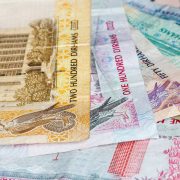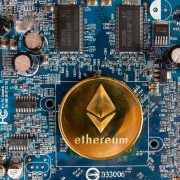Another day and yet another innovative use for cryptocurrencies. This time, a dApp (decentralized application) based upon the Ethereum (ETH) network will start rewarding citizens of Manila in the Philippines with ETH tokens for their work & efforts in cleaning up the heavily polluted beaches of the capital city of the country.
Ethereum co-creator and CEO of ConsenSys, Joseph Lubin, had this to say:
“In Manila, participants will be paid in ETH for spending a few hours cleaning up one of the most heavily polluted beaches in the world. Bounties Network and ConsenSys Impact are proving a new model where people fund causes directly without intermediaries.”
Why The Philippines?
Bounty is recognised globally as a viable blockchain tech application due to the fact that participants are handsomely compensated in a transparent fashion through the use of a public ledger on a blockchain network.
Bounties Network which is a dApp available on the Ethereum platform is an app that enables anyone using the platform with the ability to create “bounties” and thus rewards participants with ETH in support of various initiatives and causes.
ConsenSys Impact, which is a subsidiary of ConsenSys, recently introduced the non-profit organisation by the name of “Bounties for the Oceans: Philippines Pilot – Sustained, Verifiable Plastic Cleanups” in order to promote the use of blockchain technologies in the nation.
“Plastic pollution costs the lives of 1 million seabirds and 100,000 marine mammals per year. Fish eat plastic, and we eat the fish. Plastic causes $8 billion in damage to marine ecosystems each year. With Bounties for the Ocean, we are asking people everywhere to submit verifiable proof of their direct plastic cleanup contribution as a way of fostering widespread and long-term behavioural shift. Do not depend on centralized organizations, go out there and do it yourselves,” – an excerpt from the program paper.
This initiative comes at a time during which the Philippino government has recently re-opened Boracay, an extremely popular tourist destination in the nation due to it’s beautiful, pristine, crystal-clear waters, famous diving spots and the acclaimed sugary-soft white sands of its beaches after the island recovered from heavy pollution.
Furthermore, the Philippines is considered by many to be the ideal region to rollout non-profit blockchain-based initiatives due to the fact that the nation has already adopted digital currencies such as Bitcoin as legitimate forms of payment and the central bank has also recognised Bitcoin as a valid form of remittance.
As a positive result of this, Bitcoin usage, as well as other digital currencies such as ETH, has increased exponentially, by the facilitation of local platforms such as Coins.ph which have provided notable liquidity to local customers.
Through the many partnerships with commercial banks, remittance outlets, credit card companies and even convenience stores, Coins.ph has enabled cryptocurrency customers with the ability to deposit & withdraw digital assets by means of thousands of various, physical locations in the nation. Coins.ph which today stands as the largest cryptocurrency app in Southeast Asia currently has over 5 million active users and is growing by the day.
Union Bank + ConsenSys:
Earlier in May, ConsenSys managed to acquire a strategic partnership with Union Bank, which is one of the biggest commercial banks in the island nation of the Philippines in an effort to conduct a real-time domestic retail payment system test using five, local, rural banks for the test.
Henry Aguda, the Union Bank technology, and operations chief had this to say at the time of the pilot:
“With this [blockchain platform], they don’t have to spend anything. They just have to load the application i2i in their computers, tablets, or smartphones then they can transact bank-to-bank connected to blockchain.”
Lastly, a good number of companies including the New York-based ConsenSys as well as many other big conglomerate names in South Korea are currently at work with businesses, individual consumers and crypto initiatives in the Philippines in order to aid the local market with sustaining its current rampant growth rate.
Could this initiative lead to other Southeast Asian nations adopting crypto as a means to fund initiatives such as this? Thailand also has quite the name for pollution, perhaps ConsenSys could set up shop there too? Let us know your thoughts.
Follow CoinBeat on Facebook, Twitter & Telegram
Subscribe to our CoinBeat Newsletter
Submit an article to CoinBeat
View live Marketcap Prices here







Comments